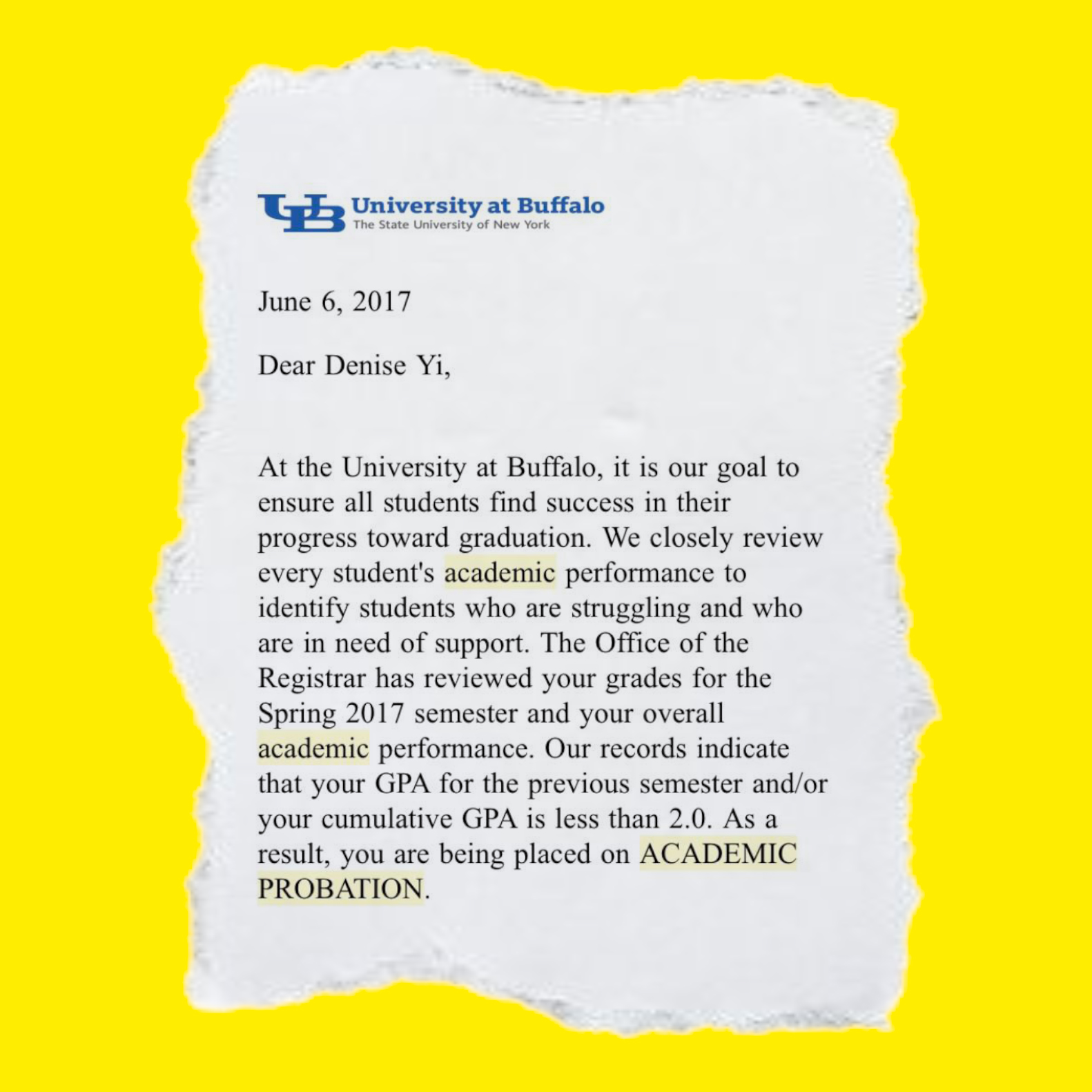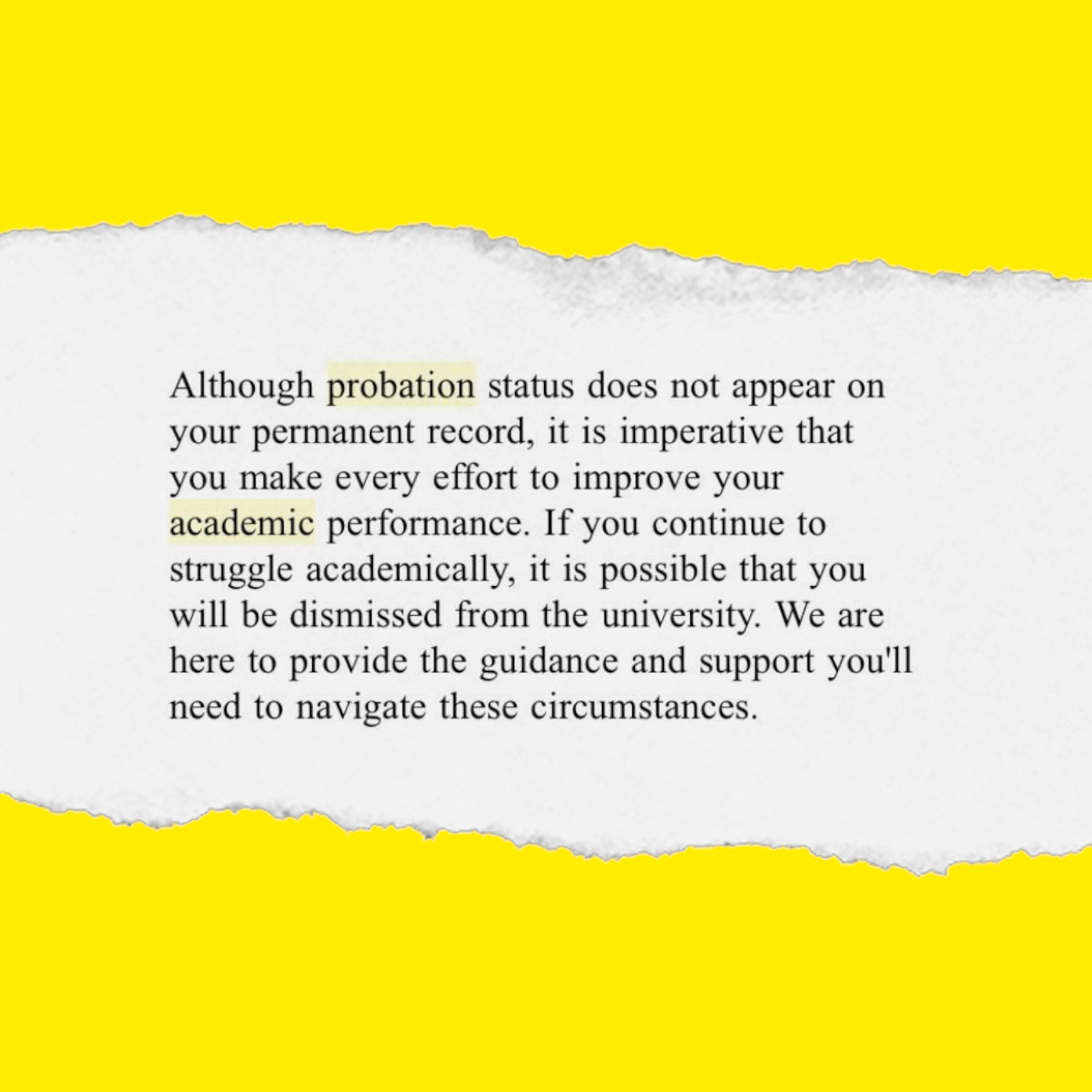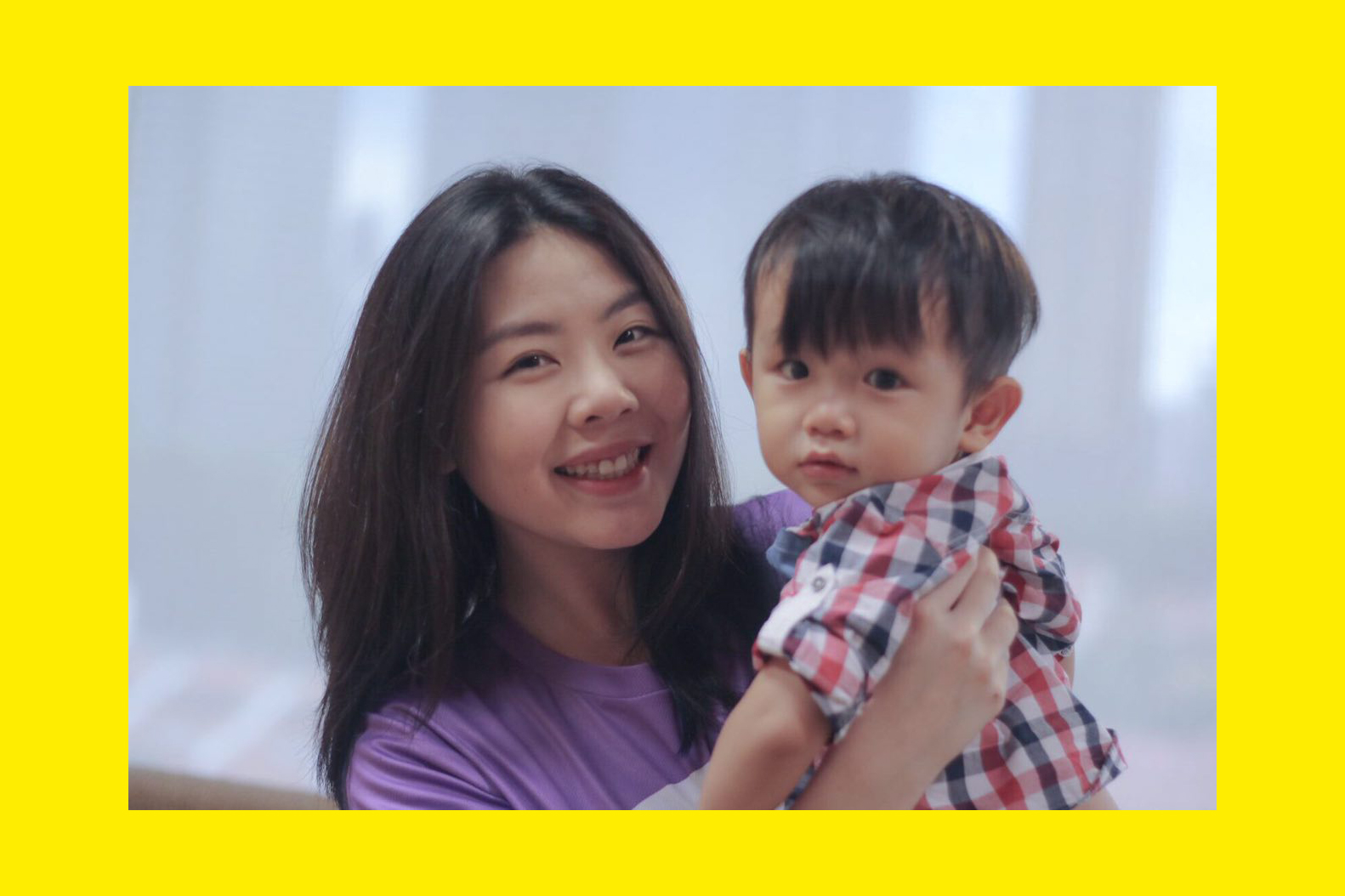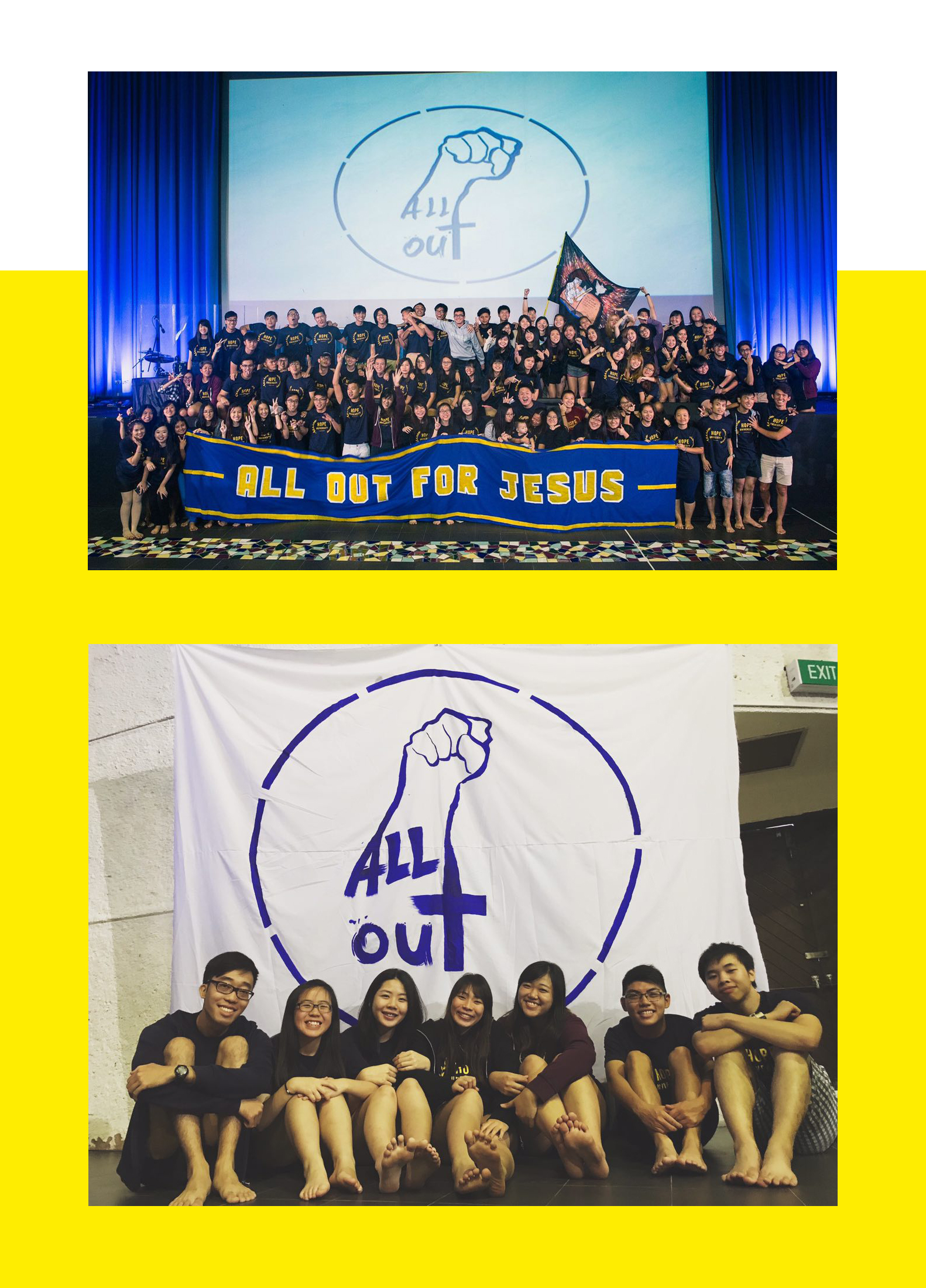I grew up in a family where I was always taught that “character is more important than how well you do in school”. My parents never pressured me to get straight As. They were okay with failure as long as I’d tried my best.
But I began to heap the expectations on myself when I was in Primary 6. I didn’t do very well for my PSLE and was placed in the Normal Academic stream.
I remember crying when I received my results. My parents couldn’t understand why I was so upset with myself when they were not.
I harboured high hopes for my future, but wouldn’t do anything to achieve any of it.
When I was 13, I realised that I wanted to pursue Psychology. I had it all planned out in my head – I’d go to Ngee Ann Polytechnic, then NUS. But despite these goals, I allowed myself to be distracted from my studies in secondary school.
I harboured high hopes for my future, but wouldn’t do anything to achieve any of it.
I was busy chasing relationships, and often got into disciplinary cases for bullying, truancy and disrespecting my teachers. I became this vulgar, hot-tempered, rebellious kid. I struggled academically.
There were times when I really wanted to change and get serious about my studies, but some of my teachers, peers and even my own family would say things like “You’re from Normal Academic, you’ll never get that far,” or “You’re not the studious type, don’t expect too much.”
I remember the worst insult I received from a teacher: “You’re Denise Soon, how can someone like you ever do well in school?”
Was being Denise Soon a bad thing? Was I hopeless?
I came to know God when I was 16 and I became determined to become a better student. But it was hard: I’d never learnt how to study. Only how to play.
So I didn’t do too well for my N-levels and O-levels, and I didn’t manage to get accepted to study Psychology at Ngee Ann Polytechnic. But I was thankful that my O-level results enabled me pursue Psychology at the University at Buffalo under SIM Global.
That meant I would start university at 17. I felt inferior: Most of the students there either had an A-level certificate or a poly diploma, whereas the different path I’d taken meant I was in university straight after my O’s.
I didn’t know anyone else who was under probation. I felt like the dumbest student in school. Part of me blamed God.
Someone told me, “Even if the rest don’t do well, they have something to fall back on, but you only have your O-level cert. If you fail, what can you do? Who would want to hire you? Which other school will accept you?”
I was scared.
According to the requirements of my major, if I were to get anything below a GPA of 2.5 for my first year, I could very possibly be expelled.
I also started to get heavily involved in church at that time. I started to serve as a life group leader, an actor and creative scriptwriter in the kids’ ministry, and as a musician. I was busy juggling church commitments and school for the next 2 years. But my grades were getting worse with each passing semester.

Before my 3rd year of university, I received an email from the school telling me that I was being placed on Academic Probation.
I was scared because I was left with just one more year. I didn’t want to get expelled. I was averaging a D-grade, and my average GPA every semester had been dropping – my GPA at the end of Year 2 was 2.4.
I didn’t know anyone else who was under probation. I felt like the dumbest student in school. A part of me felt disappointed with myself for not managing my time better. Another part of me blamed God.
Where was Your grace when I needed it the most? I served You so hard – sometimes to a point where I didn’t have enough time for my studies – so how could You let this happen?

I had to take a long, hard look at the student that I had become.
I realised that I put in less effort in modules I wasn’t interested in. In some semesters, it was easier to count the number of times I was present in class, instead of the number of times I was absent. I chose to scroll through Facebook, rather than my lecture slides. I’d fall asleep in class even if I wasn’t tired.
All this meant I wasn’t very good salt and light in school. How could I claim to live for Jesus if I couldn’t even show basic respect to my lecturer? How could I say that I’ve been transformed by Jesus, if the way I behave shows otherwise?
I struggled to serve in the kids ministry – I felt like a hypocrite teaching the children about Godly values if I wasn’t living them out at home or in school. I thought about stepping down.

I had to take a summer semester, but it came between my annual church conference and church camp.
I had a to-do list that seemed endless. Mid-terms, final exams, term papers, a million readings – while preparing to serve on the worship team for church service and camp, and write sermons for the kids ministry.
There was one week when I had to practice 11 songs; some days I had church-related activities the day before an exam. Every week I’d question whether it was worth committing myself so much to church, at the cost of my grades.
I was afraid of prioritising God because I found it hard to trust that He would provide. I looked at my friends who weren’t in church, with more time to study, getting better grades.
I was angry and bitter. I was desperate. But I also knew that I could let the situation come between me and God – or I could let it draw me closer to Him.
So I bargained with God: If I give up my time to serve you, I expect you to help me with my grades.

I recently got back my results for my first summer semester and to my surprise, not only did I manage to pull up my GPA but I also aced my term paper and my exams with a score of 99.9%.
Looking at the results, I can confidently say that #onlyJesus could help me pull through my academic struggle. I was never one who did extremely well in my subjects; to even ace a higher level module, I knew it had to be God.
Even when I failed to trust him, He never failed me.
At this year’s church camp, what my pastor said hit me hard.
“Have we become such busy people, with so much to accomplish every day, that we’ve forgotten about the brokenness in our lives and our desperate need for a Saviour?” he challenged us.
“When something you desire directly competes against God’s desires, you deny yourself of your desire to pursue God’s desire.”

I’ve learnt to trust that God will provide everything I need – so that I’m not distracted to do the real work.
I’ve learnt that I should never feel guilty for serving too hard, while worrying that God will shortchange me.
I’ve learnt that God wants to see how I make my choices. Will I choose to pursue Him or pursue my grades?
There’s a cost to going all-out for Him, but there’s also a cost to not going all-out. When I stopped to count the cost, I realised that if my studies don’t revolve around God, then what’s the point?
Jesus went all out for me. Now I must learn to do the same – not just in church, but at home and at school as well. He deserves my all.









